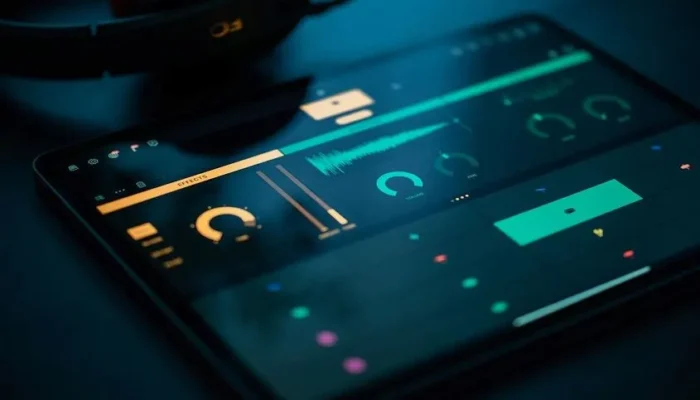
Music has always been deeply tied to human culture, emotion, and imagination. From ancient instruments carved out of bone to modern digital audio workstations, each era has seen new tools expand the way people compose and perform. In recent years, a new tool has emerged: the AI music generator. This technology raises questions not only about how music is made but also about the role of creativity itself in an age of intelligent machines.
Defining AI Music Generation
An AI music generator is a system that uses algorithms to produce sound or musical compositions. Unlike traditional music software, which relies on direct input from a human composer, these systems are designed to make decisions on their own. By analyzing existing works, they learn the building blocks of music—such as melody, harmony, rhythm, and structure—and then combine them in new ways.
Some systems generate simple loops or background melodies, while others can create full-length pieces that mimic classical symphonies, jazz improvisations, or modern pop tracks. The sophistication depends largely on the training data and the complexity of the model.
The Technology Behind It
AI music generators often rely on a type of deep learning called neural networks. These networks are inspired by the structure of the human brain, containing layers of “nodes” that pass information between each other. When exposed to thousands of songs, a network can detect patterns: which notes follow others, how chords resolve, or how rhythm interacts with melody.
Another technique is generative adversarial networks (GANs), where two models work together—one generates music, while the other evaluates whether it sounds realistic. Through constant feedback, the system improves its output until it becomes difficult to distinguish from human-created works.
Areas of Use
The applications of AI-generated music extend across many domains:
- Film and media: AI can provide adaptable soundtracks, adjusting tempo or tone depending on the scene.
- Gaming: Interactive music that changes with player choices or environments can be created automatically.
- Education: Students studying music theory can experiment with AI as a partner, instantly hearing the results of theoretical exercises.
- Research: Musicologists and computer scientists can analyze how AI interprets different styles, offering insights into the mathematics of sound.
In addition, hobbyists with no prior training can experiment with composition, making music-making more inclusive.
Opportunities and Advantages
One of the strongest arguments in favor of AI music generators is accessibility. Music has traditionally required years of training to master. While that training remains irreplaceable for professional musicians, AI lowers the barrier for beginners who simply want to explore sound.
Another advantage lies in speed and flexibility. Where a composer might take weeks to finish a score, AI can generate multiple drafts in minutes. This rapid output can inspire musicians by offering starting points, which they can then refine and personalize.
AI also broadens the ways we experiment with music. Mixing different genres, rhythms, or scales can produce surprising results and even inspire entirely new styles.
Challenges and Debates
Still, the rise of AI in music is not without controversy. A central issue is authenticity. Can a piece of music truly be called art if it is produced by a machine? Many argue that art involves intention, emotion, and context—qualities AI cannot fully replicate. Others counter that AI is simply another instrument, and its creative value depends on how humans choose to use it.
Intellectual property is another concern. If an AI system is trained on copyrighted works, its compositions may inadvertently reproduce elements of those songs. Determining who owns the resulting music—the user, the programmer, or the original artists—remains a legal and ethical puzzle.
Some worry that as AI spreads, human composers may have fewer chances, especially in commercial work focused on speed. Finding a balance between innovation and protecting creative jobs will be important in the future.
Looking Forward
The future of the AI music generator will likely be shaped by collaboration rather than competition. Instead of replacing musicians, AI can serve as a co-creator, suggesting harmonies, layering textures, or generating variations that enrich the artistic process. Just as sampling, synthesizers, and digital editing once reshaped the industry, AI may become another essential tool in the evolving musical toolkit.
As technology grows, music might adapt to each listener’s mood, surroundings, or activity. In this future, songs could feel more personal and interactive than ever.
Conclusion
AI music generators are more than tools. They mix human creativity with machine intelligence. They rethink who creates music and how it’s made. Used for learning, teamwork, or inspiration, AI in music offers fresh opportunities and sparks curiosity.
